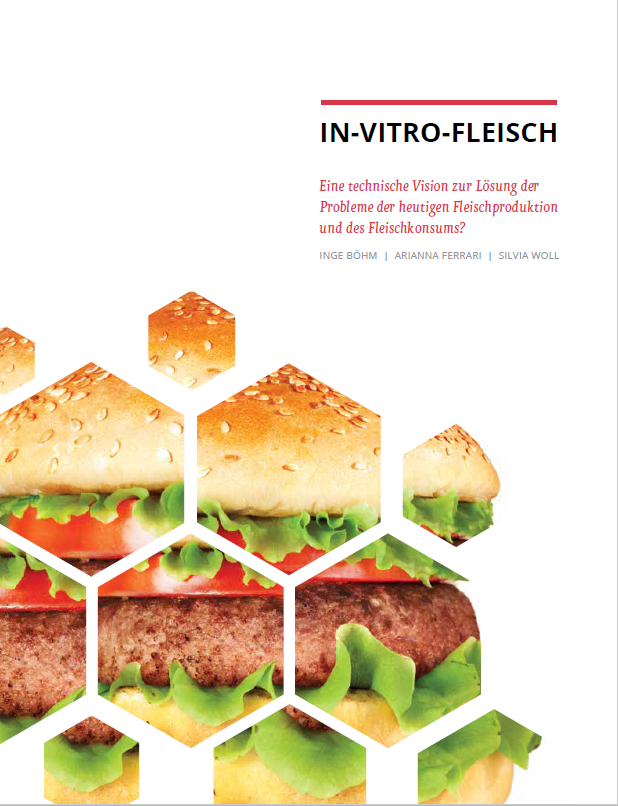Basic knowledge of in vitro meat
Many voices from society and politics call for reducing our meat consumption to protect the environment, animals, and human health. There are numerous approaches to this end. One of them: in vitro meat produced from muscle stem cells taken from an animal which are then cultivated and finally processed into meat.
By mandate of the German Federal Ministry of Education and Research (BMBF), ITAS researchers have studied the new technology’s potentials for two years. The recently published brochure “In-vitro-Fleisch – eine technische Vision zur Lösung der Probleme der heutigen Fleischproduktion und des Fleischkonsums?“ (In vitro meat – a technical vision to solve the problems of today’s meat production and consumption?) gives an overview of their results.
The brochure aims at providing comprehensive information on the technology’s potential and stimulating opinion making. To this end, the researchers describe the manufacturing process of in vitro meat in an easy-to-understand way. Based on this basic knowledge, they illustrate the opposing views and ideas on this topic: Which challenges and problems do researchers have to face? Is the option ‘cultured meat’ more environmentally friendly than conventional meat? Are animals actually protected or, against all expectations, still tortured?
The brochure collects arguments of the opponents – like environmental organizations which expect an estrangement between humans and animals – and advocates – like researchers who consider the innovation a healthier, more ecological, and ethically justifiable option. The opinions of the citizens who were interviewed during the project are documented in the publication as well.
The brochure is available for download (PDF). (22.01.2018)
Böhm, I.; Ferrari, A.; Woll, S.
In-vitro-Fleisch: Eine technische Vision zur Lösung der Probleme der heutigen Fleischproduktion und des Fleischkonsums? Karlsruhe: KIT 2017
full text/pdf


